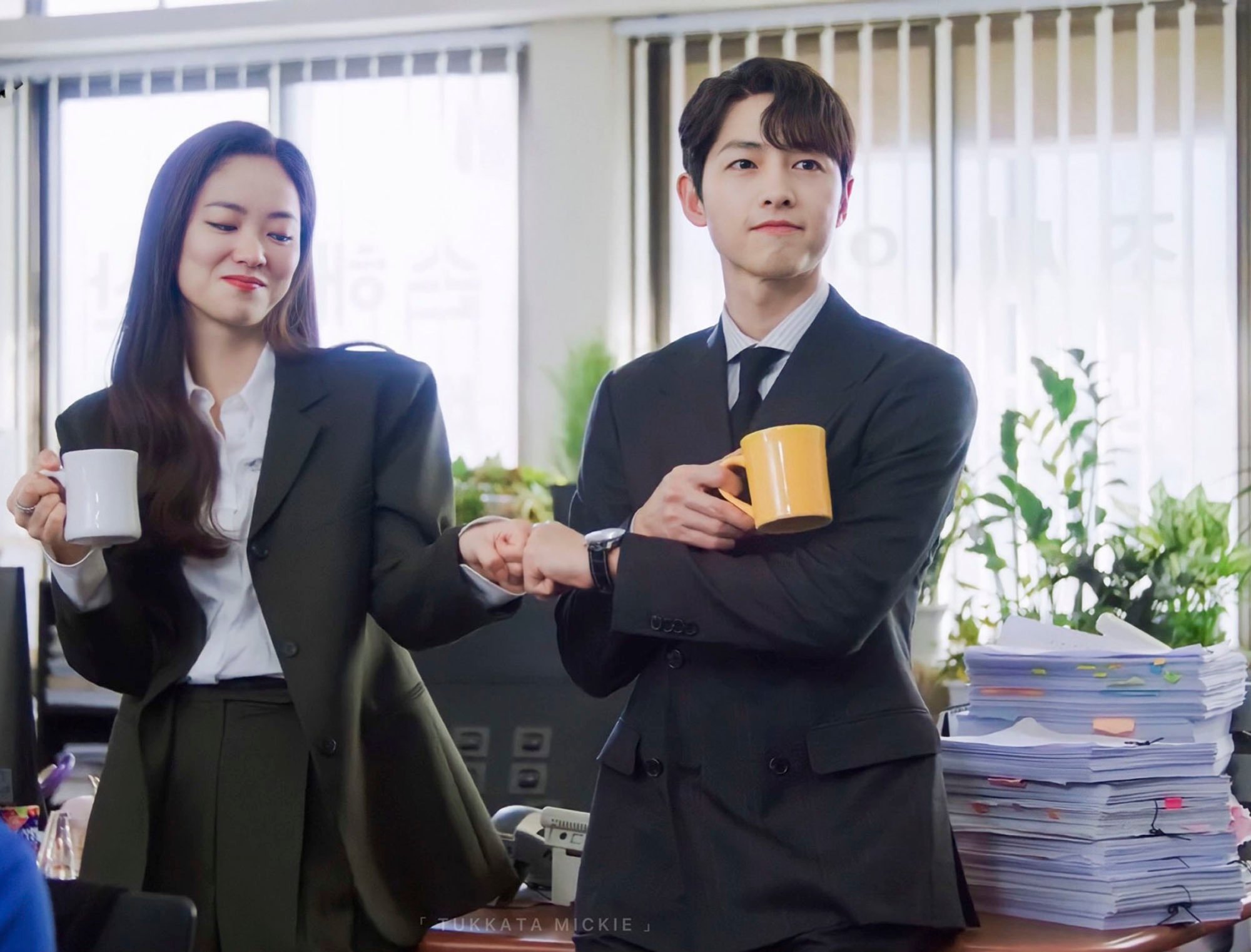
As K-dramas and films reach a global audience via streaming services, it is no surprise to see the growth in popularity of Korean instant coffee.
Exports of Korean coffee mixes rose 4.7 per cent to US$336.19 million in 2022, according to data released by the Korea Agricultural Trade Information website.
Coffee mix has been a comfort drink for Koreans since 1976, when Dongsuh Foods, the nation’s largest instant coffee maker, started selling individually packaged instant coffee mixes. In 1987, the company introduced instant coffee sticks in response to consumers’ concerns about excessive sugar intake.
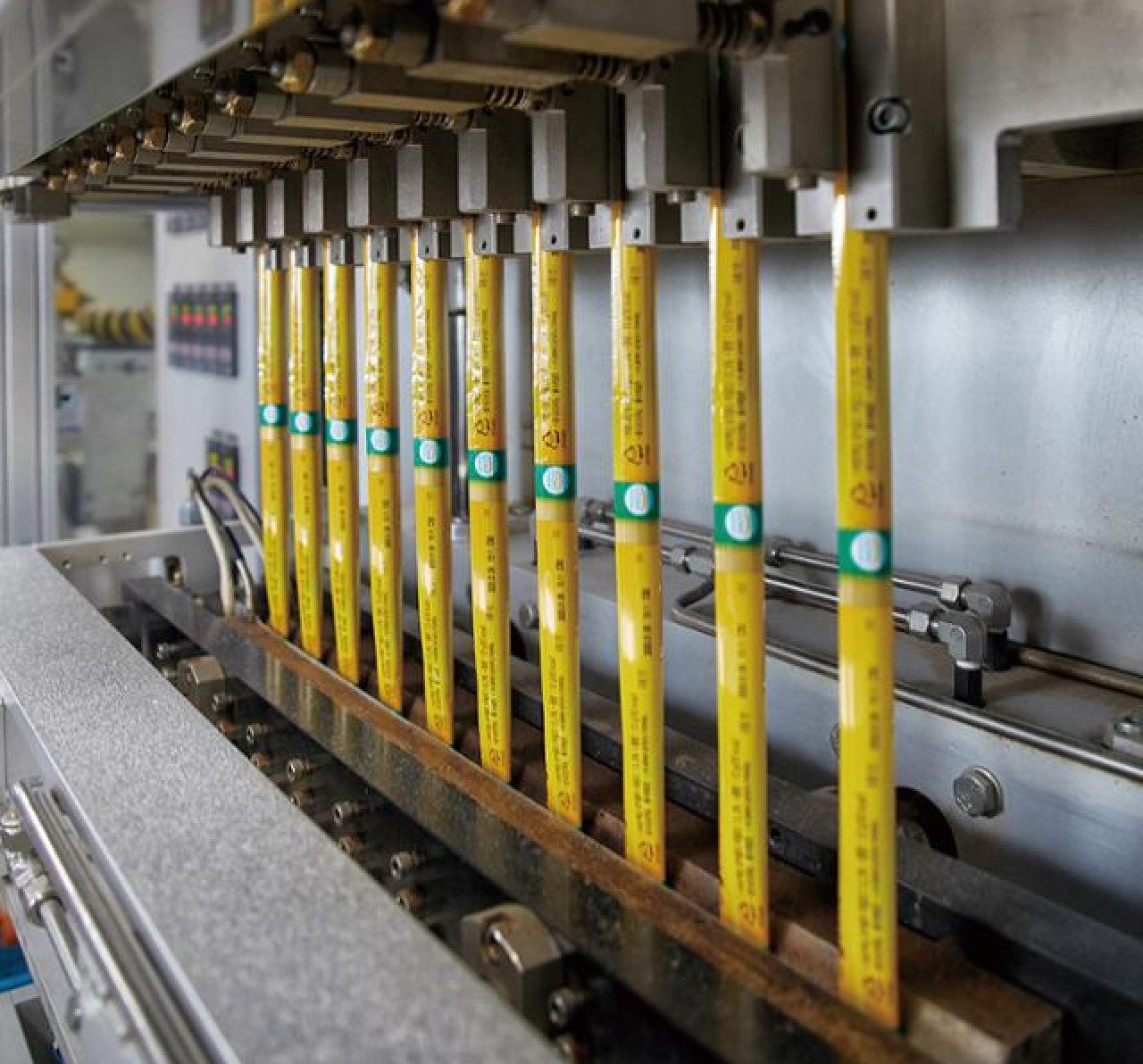
“The first instant coffee came in the form of a pouch, but we later developed the stick where we stack the sugar, creamer and coffee powder,” says Choi Kyung-tae, a representative of Dongsuh Foods. “This enables one to control the amount of sugar added from the end of each stick.”
Recalling the spike in demand for coffee mixes back in the day, Choi says, “Coffee mixes were originally marketed towards those who engaged in outdoor activities, such as hiking, climbing and fishing,” but then, “in the late 1990s, they began to be heavily consumed in offices after hot water dispensers found their way into workplaces and people started making their own coffees.”
The 1997 Asian financial crisis led to massive lay-offs, and staff who performed simple tasks – such as making coffee – were the first people to be let go. Those left behind had to work long hours and they came to rely on coffee mixes for the occasional energy boost.
To this day, instant coffee mix is a must-have item in the average Korean office pantry, despite the growing popularity of freshly brewed coffee.
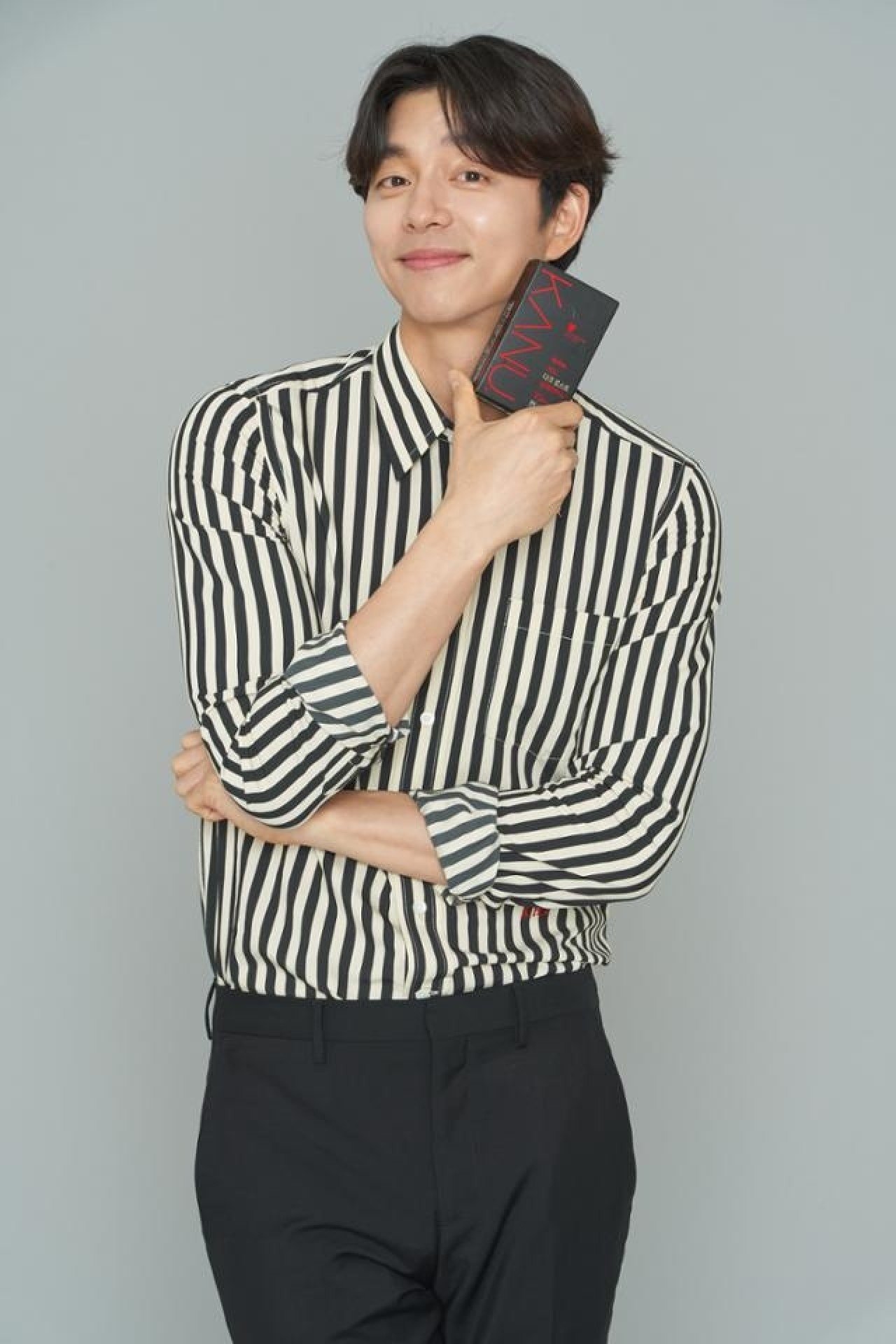
Sarah Lee, a 34-year-old administrative manager in South Korea’s capital, Seoul, says she always keeps instant coffee in her office kitchen.
“Part of my job is to select snacks and drinks for the office pantry. We have a capsule coffee machine for Americano lovers, but we always store instant coffee for those who need a quick sugar rush,” Lee says, adding that she prefers drinking black coffee in the morning and instant coffee mix in the afternoon.
To compete with cafe-brewed coffee, which began to replace instant coffee in the early 2000s – thanks to the influx of global coffee chains such as Starbucks – Dongsuh Foods launched Maxim Kanu, a new instant brewed coffee brand, in 2011.
“Maxim coffee mixes, including Original, Mocha Gold and White Gold, are heavily consumed in offices and public spaces whereas Kanu is more aimed at home kitchens,” says Choi.
Although Dongsuh Foods accounted for 87.9 per cent of Korea’s instant coffee market as of 2022, it does not export any of its Maxim coffee mixes.
“We are a joint venture with United States snack food giant Mondelez International, and our business contract allows Dongsuh Foods to only sell Maxim-branded products in Korea, to prevent its products from competing with Mondelez International’s coffee products,” says Choi.
Espresso coffee bars? Seoul’s in love – the city’s baristas explain why
Espresso coffee bars? Seoul’s in love – the city’s baristas explain why
Maxim coffee mixes sold on global e-commerce websites and at Korean supermarkets abroad are from individual sellers who buy them from Korea and sell them online or overseas.
With more than 3,800 branches across South Korea, Ediya Coffee is the largest coffee chain in the country; it rolled out its own instant brewed coffee brand, Beanist, in 2012 and also made inroads into the US market in 2021.
It now exports instant coffee mixes to 19 countries and regions, including Hong Kong, Mongolia and Australia. The company has seen a huge rise in the US market.
“About 70 per cent of Ediya’s US sales come from instant coffee mix,” says a company representative. “Total sales from January to July 2023 were up 223 per cent from the same period a year earlier.”
The official says the global popularity of Korean television shows has led to a surge in the brand’s overseas sales.
“Instant coffee mixes are well received abroad due to their flavour and convenience,” he says. “We think frequent exposure of coffee mixes in K-dramas and films has naturally led to increased interest in Korean instant coffee.”
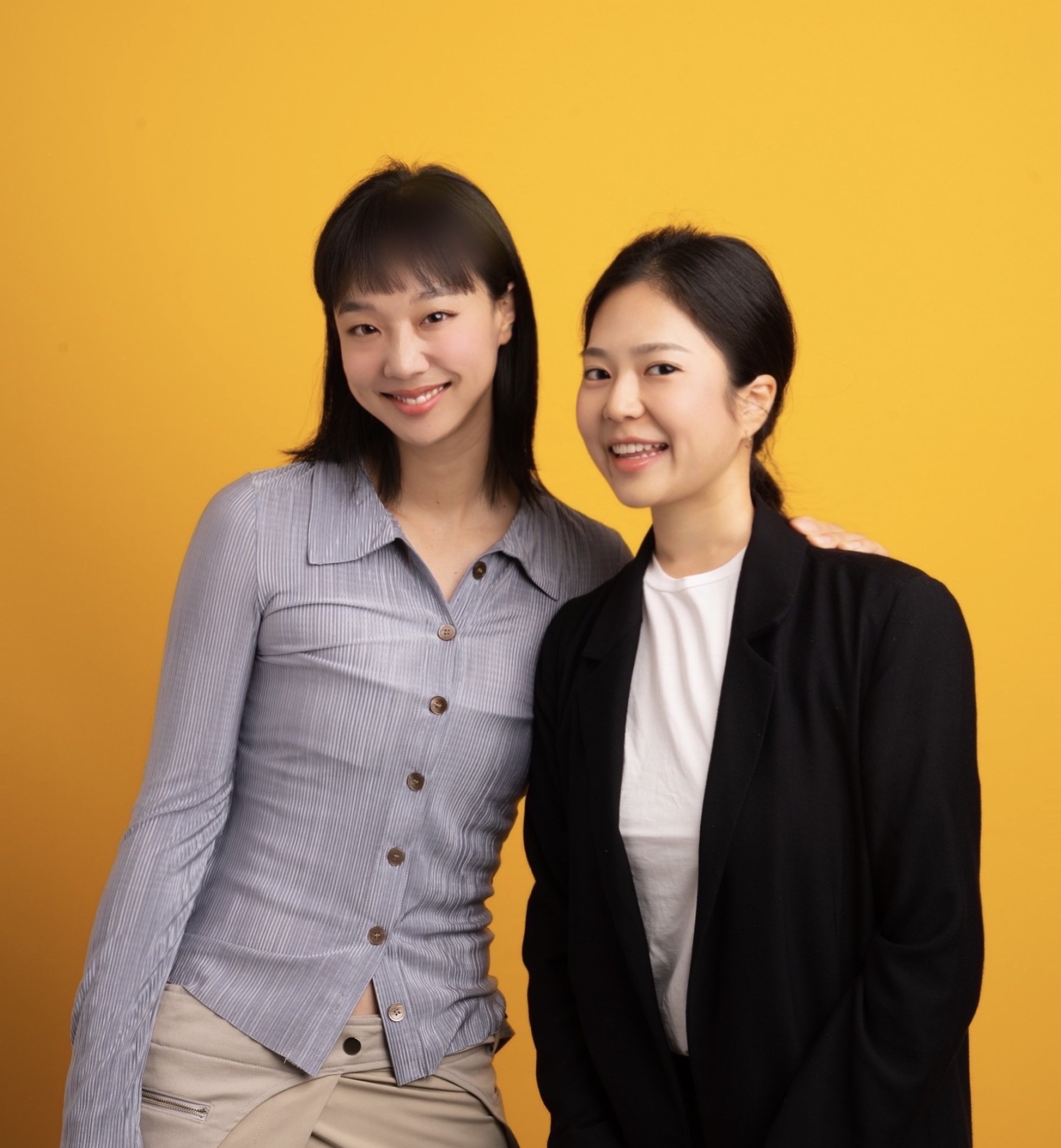
But it’s not just big coffee shop chains that have found business opportunities outside the country.
In May, two young female entrepreneurs in the US launched KimlyParc, an instant coffee brand named after the three most common Korean surnames – Kim, Lee and Park.
KimlyParc’s co-founders, Song Chae-yeon and Kim Young-joo, say their mission is to share the rich taste and culture of Korea with coffee lovers all around the world. To this end, they have reinvented the 90s-style Korean instant coffee.
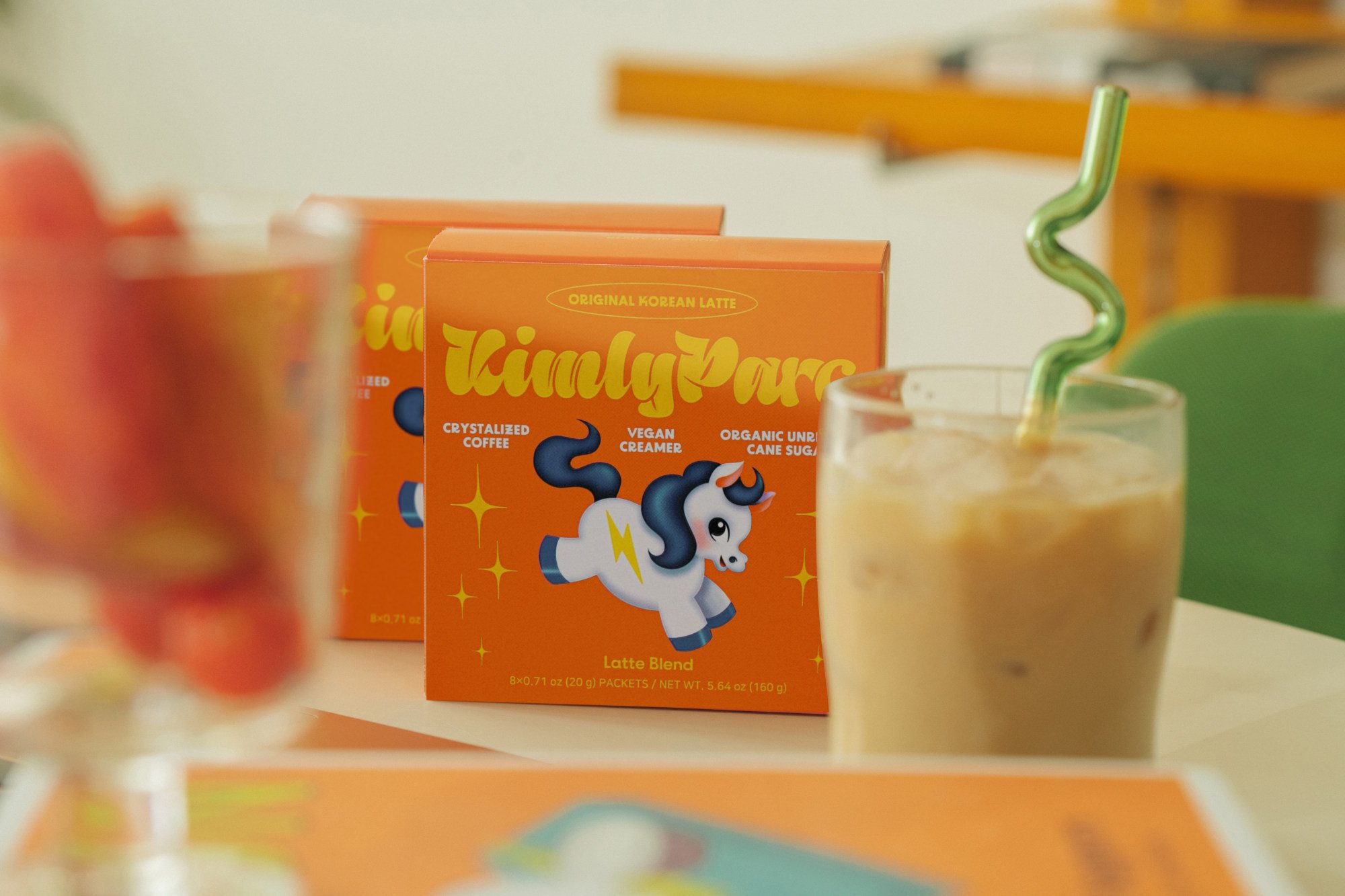
“We were both born in 1990, and when we were seven or eight, the Asian financial crisis hit Korea,” says Song, who moved to the US in 2019. “Even though we were very young, we sensed the threat of our country being in big trouble.
“I was very little but I could tell that coffee mix was common in places where people gathered and united during those challenging times. KimlyParc is like a message of encouragement for our generation who also face complex socio-economic challenges like economic downturns, inflation and climate change.
“For some people, buying a cup of coffee could be a luxury.”
How is their brand different from the conglomerates?
“We use high-quality ingredients because today people are very health conscious,” says Kim. “We use vegan creamer, organic unrefined cane sugar and Himalayan pink salt to enrich the flavour. And we emphasise our Korean identity.
“If you check out our Instagram account, we often post about 90s Korean pop stars, music and coffee shops in Seoul. It’s something we do deliberately to give our brand an identity.”
20 years of the Starbucks Pumpkin Spice Latte: are you ready for more?
20 years of the Starbucks Pumpkin Spice Latte: are you ready for more?
Kim says they felt that now is the right time to introduce Korean coffee to an international audience, because more people are paying attention to Korean culture.
“Now that we are witnessing a Korean wave with our own eyes, we want to contribute to it.”

